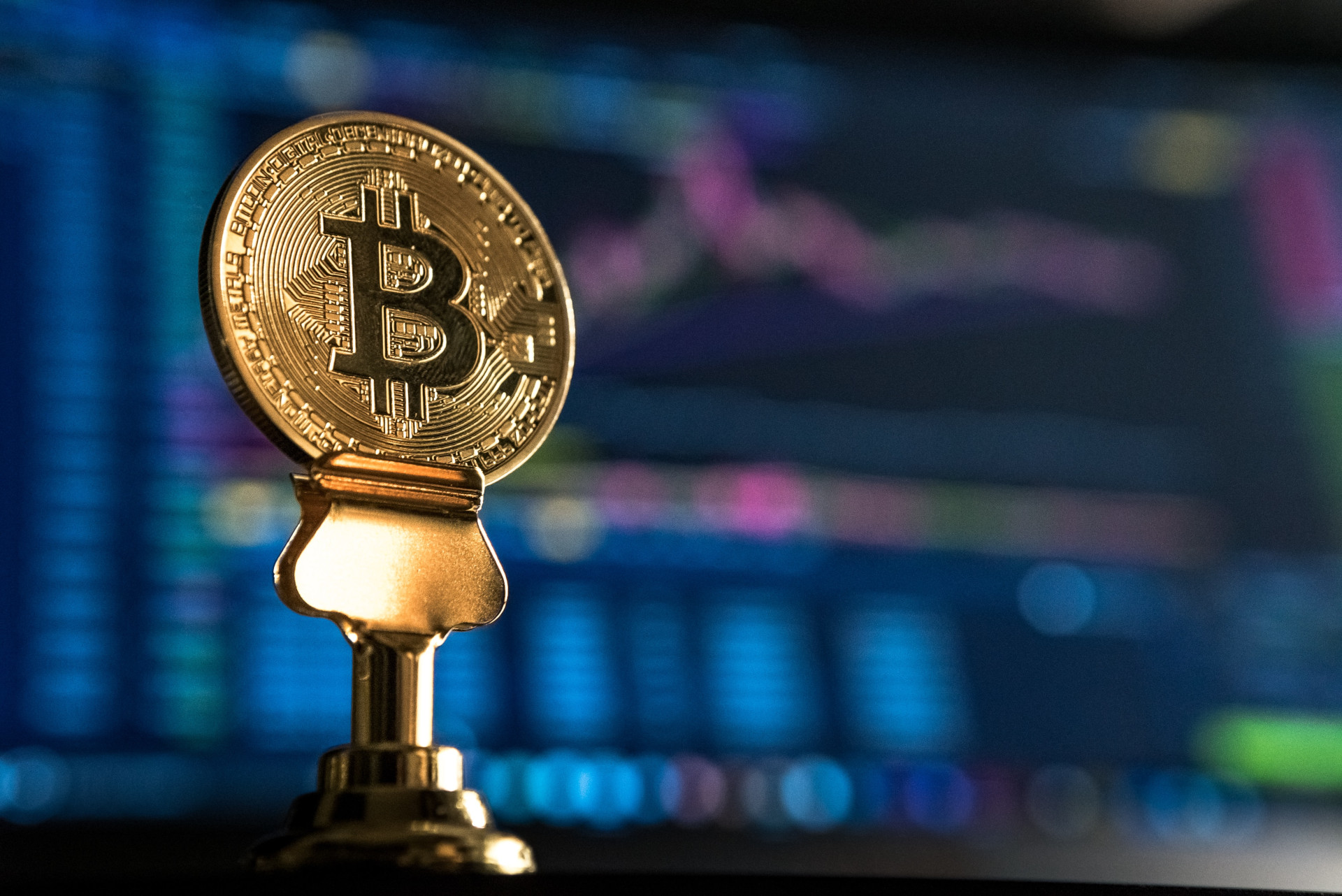
If you’ve only recently come across cryptocurrencies and, in particular, the recent price surge of Bitcoin, you might be convinced that it’s already too late to jump in.

While a group of crypto-enthusiasts believes that the value of cryptocurrencies (like Bitcoin) will continue to rise and, better yet, multiply, crypto-skeptics, on the other hand, believe that cryptocurrencies are the mother of all bubbles.
Despite the enormous disparity in views about the future of cryptocurrencies, their performance has exceeded everyone’s expectations.
They have made millionaires and have proven that they can no longer be ignored.
So, should you invest in Bitcoin or cryptocurrencies in 2021? We’re going to look into arguments for and against it.
Reasons to invest
1. A hedge against inflation
I never really understood the point of cryptocurrencies until I learned about their ability to hedge against inflation.
Recently, inflation has been all over the news, with prominent investors like Warren Buffett, Charlie Munger, Ray Dalio, and Michael Burry issuing warnings of impending inflation.
These warnings have been sufficient to send me into research mode, looking for ways to help you protect your wealth from inflation.
But what is inflation? Basically, inflation refers to the rise in the prices of goods and services. This increase in prices is often caused by the loss in the value of a currency due to excessive money printing by central banks.
During inflationary periods, money loses its value, and your dollar becomes worth less and less. Investors, therefore, look to alternative asset classes to protect the value of their wealth against a weakening currency.
Crypto replacing gold?
Gold has always been the go-to asset class for these investors looking to protect their wealth.
And if you look closely into the fundamentals of both gold and cryptocurrencies, you’ll realize that they have a great deal in common.
- Store of value
- Have limited supply.
- Cannot be watered down in value.
Bitcoin possesses the same characteristics that make gold a great store of wealth. It has therefore been labeled the ‘digital gold’.
Just like gold, bitcoin’s value cannot be watered down because there’s a set amount of them in the system. There will never be more than 21 million bitcoins.
Considering how bulky gold is, it is reasonable to say that crypto could soon be the go-to asset as an inflation hedge.
If you’d like to know more about inflation, I recommend checking out this blog, where I extensively explain what inflation is and how you can profit from it.

2. Mainstream Adoption
Lately, the main thing helping drive up demand and thus the price of cryptocurrencies is mainstream adoption.
Prior to its massive upwards rally, Bitcoin was only popular among crypto enthusiasts who used it as a store of value or had high convictions in it as an investment.
Businesses accepting crypto as payment
Recently though, businesses are starting to see cryptocurrencies as more than just a store of value.
Companies such as Paypal, Microsoft, and some Fast-food chains have begun embracing it as a currency and accept it as a form of payment.
Crypto can now be traded on trading apps
Stock trading apps that revolutionized the investing space also started incorporating cryptocurrency trading into their platforms.
Apps like Robinhood and Cash App have pushed cryptocurrencies into the hands of retail investors, further increasing their popularity. The more individuals hold bitcoin and other cryptocurrencies, the easier it gets for companies to start accepting it as payment.
To make things even better, Coinbase, the world’s largest cryptocurrency exchange, went public in April at a valuation of $100 billion. It became the first cryptocurrency exchange to be listed on Wallstreet, further legitimizing cryptocurrency.
By now, you’re probably thinking – That’s it! Crypto is here to stay! – But we’re not done quite yet.
Governments and financial institutions getting on the bandwagon
The catalyst that’s helping make crypto even more mainstream is the news about the Chinese government’s plans to issue a digital currency in order to reduce their reliance on the US dollar. It has sent shock waves across government institutions in the US. Janet Yellen, the treasury secretary, has been quoted as saying, “The Fed doesn’t have authority to regulate bitcoin” and that “US financial regulators should not stifle innovation.”
Financial institutions do not want to be left out of the bandwagon either. Goldman Sachs is struggling to catch up with Bitcoin while JP Morgan is developing its own digital coin for real-time payments.
In short, bitcoin and other cryptocurrencies have recently received mainstream support that did not exist a few years ago.
If the use of bitcoin as a hedge against inflation doesn’t appeal to you, think about its current mass adoption and its potential use as a currency.

3. Billionaires and prominent investors are buying Bitcoin.
Ray Dalio
Ray Dalio, the founder of the largest hedge fund, Bridgewater Associates, a few weeks ago, revealed, “I have some bitcoin .”
The billionaire also admitted that cryptocurrency had earned his respect.
This comes after many years of Ray Dalio expressing deep concerns about the future of Bitcoin.
Chamath Palihapitiya
Chamath Palihapitiya, ex-Facebook executive and the billionaire behind Social Capital, started investing in Bitcoin about ten years ago.
He believes that Bitcoin will rival or even replace gold as a store of value.
He’s also touted that stable coins will take over the dollar’s role as a daily transactional currency.
Raoul Pal
Raoul Pal, a former hedge fund manager at Goldman Sachs, made quite the statement when he invested 98% of his liquid assets into Bitcoin and Ethereum (80/20).
Pal has such an optimistic outlook on crypto that he said, “This is the biggest, best, single bet I’ve ever seen in my career of every asset I’ve ever looked at.”
Cathie Wood
Cathie Wood, the head of Ark Investment Management, is extremely bullish on Bitcoin.
In an interview with Bloomberg, she said that she still expects Bitcoin to rise to $500,000.
Mark Cuban
Mark Cuban, who once stated that he would rather own bananas than Bitcoin, eventually got onto the bandwagon.
The billionaire who owns the NBA’s Dallas Mavericks is famous in the crypto world for being one of the first people to accept the meme-inspired crypto, Dogecoin, as payment.
The Dallas Mavericks have also been accepting bitcoin since 2019.
Reasons not to Invest.
It might seem like there’s been nothing but good news for bitcoin and cryptocurrencies and that they’re going to the moon.
Unfortunately, that’s not the case.
So now, let’s have a look at the bad about cryptocurrencies.
1. Regulation
In 1933, during the great depression, the US government confiscated all gold from its citizens. Gold ownership immediately became illegal and remained so until the 1970s.
Such government intervention is not unique to the US. The Australian government, in 1959, put in place a law that would allow the seizure of gold from private citizens to protect their currency.
The UK did a similar thing by limiting the amount of gold or silver an individual could own to a maximum of four coins.
If more and more people choose to have their savings in Bitcoin, less money goes into credit, and the government runs the risk of losing control of its currency.
While revealing his Bitcoin ownership, Ray Dalio maintained that Bitcoin is still not risk-free.
“Bitcoin’s greatest risk is its success,” he said.
While Bitcoin experts say it would be very difficult for governments to effectively ban Bitcoin, they also say that it’s possible to see some restrictions through government regulations.
“I don’t think that’s (bitcoin shut down) technologically possible. But there are ways that bitcoin could be regulated.” James Ledbetter, an editor of fintech newsletter FIN, says.
Even though unlikely, government regulation has the potential to crash Bitcoin’s exemplary performance. Beware of buying when the price is too high.
2. Price Volatility
It’s not unusual for the price of bitcoin to experience a 30% uptick or decline in a matter of hours. In fact, nosedives of over 80% have happened three times within the decade Bitcoin has been in existence.
What if you planned to make a purchase only to find the item’s price has increased by 30% a few hours later just because of currency fluctuations.
For this reason, it is my opinion that it’s an undesirable form of currency.
The Bottom Line
Ultimately, the benefits of owning a well-established cryptocurrency, like Bitcoin, are significant enough to warrant your consideration.
As to whether you should go right ahead and invest in bitcoin or other cryptocurrencies, the answer is you should do your due diligence before investing.
Carefully consider the reasons for and against investing in cryptocurrencies mentioned earlier before making your determination.
You can also learn a lot from reading other articles and watching a few Youtube videos. I recommend checking out Andrei Jikh’s channel.
Myself, I have about 5% of my portfolio in Bitcoin and Ethereum. It’s the percentage I’m most comfortable with.
Investing in cryptocurrencies is similar to investing in the stock market and requires the same temperament. So remember, don’t invest money you’re not willing to lose.
I recommend checking out this guide on 5 things to do if the market crashes.
Disclaimer: None of this is meant to be construed as financial advice, it’s for entertainment purposes only. Links may include affiliate referrals and I may receive compensation from partnering websites. The content is accurate as of the posting date but may not be accurate in the future.

















